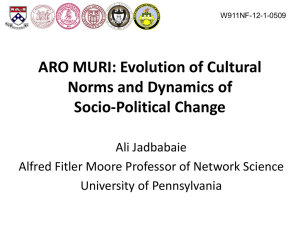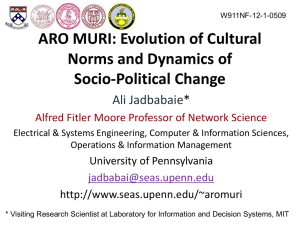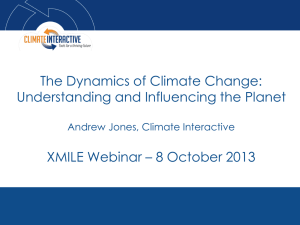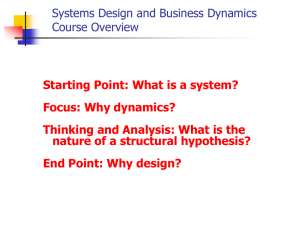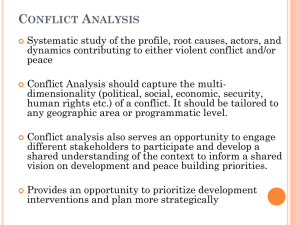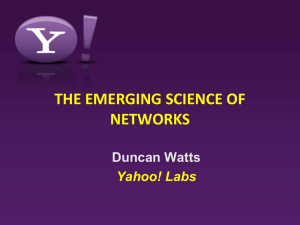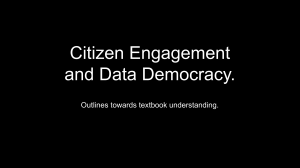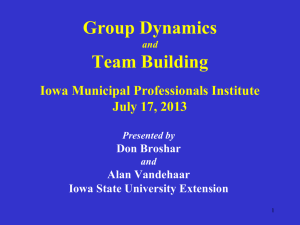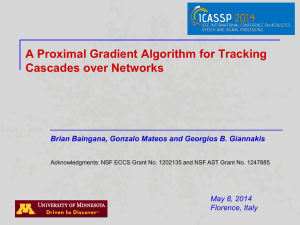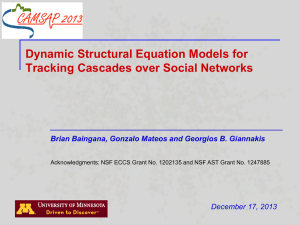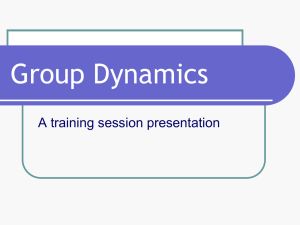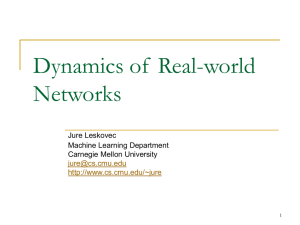MURI overview - SEAS - University of Pennsylvania
advertisement
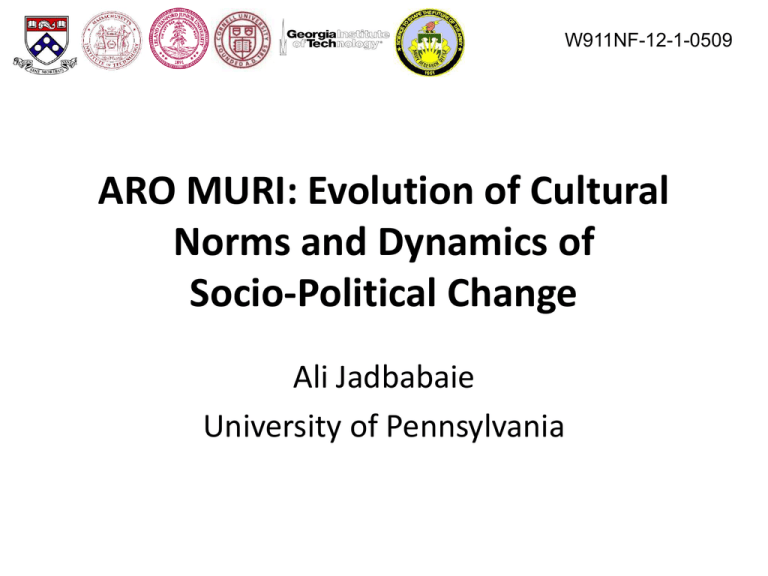
W911NF-12-1-0509 ARO MURI: Evolution of Cultural Norms and Dynamics of Socio-Political Change Ali Jadbabaie University of Pennsylvania The Team Ali Jadbabaie (PI) Michael Kearns Daron Acemoglu Asu Ozdaglar Munzer Dahleh Fotini Christia University of Pennsylvania Matt Jackson Jure Leskovec Stanford University Massachusetts Institute of Technology Jeff Shamma Georgia Institute of Technology Jon Kleinberg Larry Blume Cornell University Motivation and Overview • Goal: create a research program that leads to understanding of social norms, political change, cultural dynamics, societal stability with a multi-dicsiplinary lens involving network science, systems theory, dynamics, Economics, Political Economy, Computer Science • Many of the central questions involve interactions among individuals and groups with different identities – Study of collective phenomena and collective decision making in networked setting with domain specific knowledge – Need more quantitative approaches, beyond descriptive • Need theory, principled modeling, data analysis, lab experiments, and field surveys • Need to educate a new breed of computational social scientists and engineers Why us? • Our team literally wrote the book on the topic Meme tracker How Does it all come together? Network Science Economics/ Political Economy Systems Theory Computer Science Experiments/ Field studies Jadbabaie [S2,M2] Acemoglu[S1,P2]Ozdaglar[M2,M3] Kearns Collective behavior, Dynamics of Game Theory, social aggregation, sociopolitical Networks, dynamics of cascades change, learning Cascades Dahleh [C1,C2] Jackson [S1,S2] Blume [S3, M1] [M2,P4] Behavioral Field studies, large Networks, games Experiments, randomized surveys algorithms, from conflict zones Modeling cascades contagion Control, Decision Social and economic Econometrics of networks, evolution social networks, making, Global networked games of social norms Emergence of trust Theory • First principles • Rigorous math • Algorithms • Proofs Modeling Data Analysis Christia [P2,P3] Kleinberg[M1,P2] Leskovec [M2,P2]Shamma [C1,C2] Social networks data and experiments Lab Experiments Learning in games, robustness, evolutionary dynamics Real-World Surveys • Economics • Analysis of • Stylized, Controlled • Extremely challenging! •Political Science social • Clean, real-world • Randomized, large scale •Empirical data network data data studies • How to deal with • computationa “no physics” l • Social science Agenda for the day 09:00-09:30 09:30-10:00 [S3,M1] 10:00-10:30 10:30-11:00 11:00-11:30 11:30-12:00 Modeling and analysis of cascades and contagion Jon Kleinberg, Cornell [M2] Evolutionary games and identification and modeling of social interaction Larry Blume, Cornell Networked global games Munzer Dahleh, MIT [C2] Coffee Break Evolution of Social Norms Matt Jackson, Stanford [S1] Field Experiments: Role of post-conflict development Fotini Christia, MIT [P2] 12:00-12:30 Empirical study of Social Interactions: Twitter data Jure Leskovec, Stanford [P3] 12:30-1:30 Lunch (served in Levine 307) 1:30- 2:00 2:00-2:30 2:30-3:00 3:00-3:30 Political Change, Societal stability and emergence of democracies, Daron Acemoglu, MIT [P1] Fluctuations, Systemic risk and cascades in networks Asu Ozdaglar, MIT [M3] Competitive Contagion and Behavioral experiments Michael Kearns, Penn [P4,M2] Coffee Break 3:30-04:00 Influencing Social Evolutionary Dynamics Jeff Shamma, GeorgiaTech [C1] 4:00-4:30 Social Learning and belief aggregation Ali Jadbabaie, Penn [S2] 04:30-5:30 Discussion and Feedback
